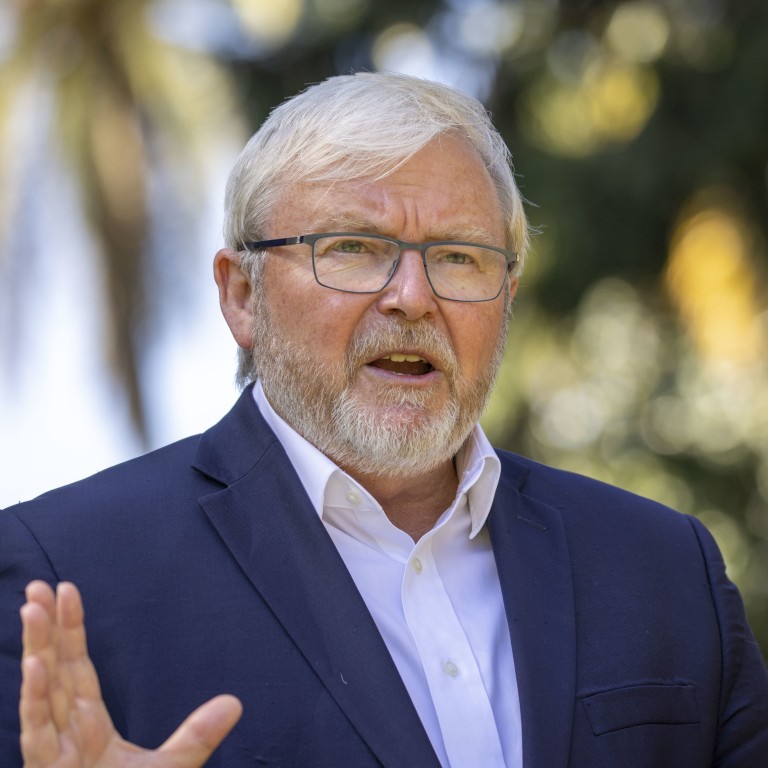
China’s slowing economy ‘the biggest elephant in the room’, Kevin Rudd says
- Former Australian prime minister says China is dealing with ‘self-inflicted’ problems, including ‘poor policy choices’
- Rudd also says Beijing appears to have pulled a U-turn in its ‘common prosperity’ drive, saying the term has all but vanished as part of an economic course correction
Reversing the trend of a slowing economy is the biggest challenge facing China’s leadership this year, especially with the Communist Party’s national congress only months away, according to former Australian prime minister Kevin Rudd.
“In 2022, the biggest elephant in the room on this score remains the [Chinese] economy,” said Rudd, who is now president and CEO of the Asia Society, during an address to the New York-based non-profit organisation on May 9.
“China’s economic headwinds are therefore manifold, complex and strong – and in large part self-inflicted, due to a number of especially poor policy choices by China’s leadership.
“The prospect of a faltering economic growth is one that should worry Xi the most.”
President Xi Jinping is widely expected to stay on for a third term, which will be decided at the 20th national congress this autumn.
The world’s second-largest economy has been facing mounting downward pressure since the second half of last year.
It has been further disrupted this year by stringent lockdowns under Beijing’s “dynamic zero-Covid policy”, which has hindered production and mobility across the country. But Beijing says its handling of the pandemic is proof of the superiority of its political system, and of how the party values life above all.
Economic toll of China’s latest virus outbreak ‘10 times’ worse than Wuhan
“It appears that, despite the economic disruption and the public’s mounting impatience and frustration, Xi’s determination to stick with his so-called dynamic zero-Covid policy remains unchanged,” Rudd said.
“But as long as these lockdowns remain in place, the costs of China’s Covid policy on the Chinese economy will continue to compound over time and add to the political and economic headwinds facing Xi in the countdown to the 20th Party Congress in November.”
Meanwhile, Russia’s invasion of Ukraine has also added to the mounting challenges that the Chinese economy is facing this year, mainly through soaring global commodity prices and disrupted supply chains, Rudd noted.
Other challenges include whether Beijing can effectively boost private-sector confidence.
[‘Common prosperity’] was visible everywhere and on everyone’s lips. But this year, it has all but vanished
“Last year, the term [‘common prosperity’] was visible everywhere and on everyone’s lips,” Rudd said, referring to Beijing’s call for citizens to share in the opportunity to be wealthy. “But this year, it has all but vanished.”
“To achieve the goal of common prosperity, we must first make the pie bigger and better through the joint efforts of the people of the whole country, and then correctly handle the relationship between growth and distribution through reasonable institutional arrangements, so as to divide the pie well,” Xi said in the speech.
“Curbing the disorderly expansion of capital does not mean totally abandoning capital, but letting capital develop in an orderly manner.”
Is China using a ‘shadow stimulus’ to shore up economic growth?
But the actual impact of the correction has yet to be seen, and business confidence in China’s private sector business is far from restored, Rudd said.
“There are many mixed signals from the centre, suggesting there is a continuing internal debate on how to resolve, with finality, the central economic line.”
Economists, meanwhile, have called for stronger policy support to stem risks of a further economic slowdown.

